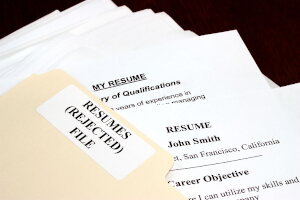
In my last article I talked about how to apply for jobs online. I emphasized the importance of addressing each of the job requirements in your response.
But what if you don’t meet all of the job requirements? Then what?
The answer is a solid “it depends.” On what?
It depends on several factors. First of all, if the job itself is well defined and clearly limited to those who meet all of the criteria, do not apply directly to that job. An example of this would be a government agency job posting. These usually have a very tight job description including very specific bona fide occupational qualifications (BFOQs). Applying to this type of job without meeting the BFOQs will, in most cases, be a dead end. But is that it? Should you simply go on to the next one? No, you should go to the employer website. Browse through other job opportunities to see if there is one where you do meet the qualifications of the role. If not, explore whether there might be a way to apply to the employer in general.
For jobs that are not as well defined, you may want to still apply directly to the role. An example of this is a role which listed “required” skills along with “preferred” skills. Meeting all of the required skills is sufficient for applying for the role.
But what if you do not meet all of the required skills? One of the keys in reading the job description is to read past the numbers, specifically the number of years of experience. Employers hire people who can perform the job. They don’t hire numbers. So although the job description says it requires a minimum of two years’ or five years’ or ten years’ experience and you are not there yet, if you can perform the required responsibilities of the role, you should still apply.
Keep in mind that many (perhaps most) employers write the job description based not on where they hired the previous occupant of the role, but on the level of the employee when vacating the role. So perhaps someone has been promoted internally or has left the company. If that person started as an entry level hire, but now has two years’ experience, the employer will often seek first to hire someone with two years’ experience. Yet the person in the role filled it very well having started at the entry level. So while an employer’s preference (and preference is the key here) may be to hire someone with more experience, they may also be willing to consider someone with less than ideal experience, especially when it comes to the number.
Another thing to keep in mind when reviewing a job posting is whether it appears to be a veritable wish list of qualifications. This can happen when an employer is trying to replace a specific person who had very specific skills. But that person may be the only person in the universe with all of those skills. And so the list of skills becomes a wish list. If you are reading a wish list and you are close to meeting all of the skills, you should still apply.
So seek first to apply to roles where you meet all of the requirements. Yet also read between the lines of job postings where there is a preference vs. a requirement for the role. Even in those cases where you are not qualified for the specific role, you can still explore applying to the employer for other open roles. Your resume will then be entered into their ATS (applicant tracking system), an internal database of resumes.
You should also make sure your resume is already posted to an entry level resume database like the one at CollegeGrad.com so that you can be found by hiring employers.



